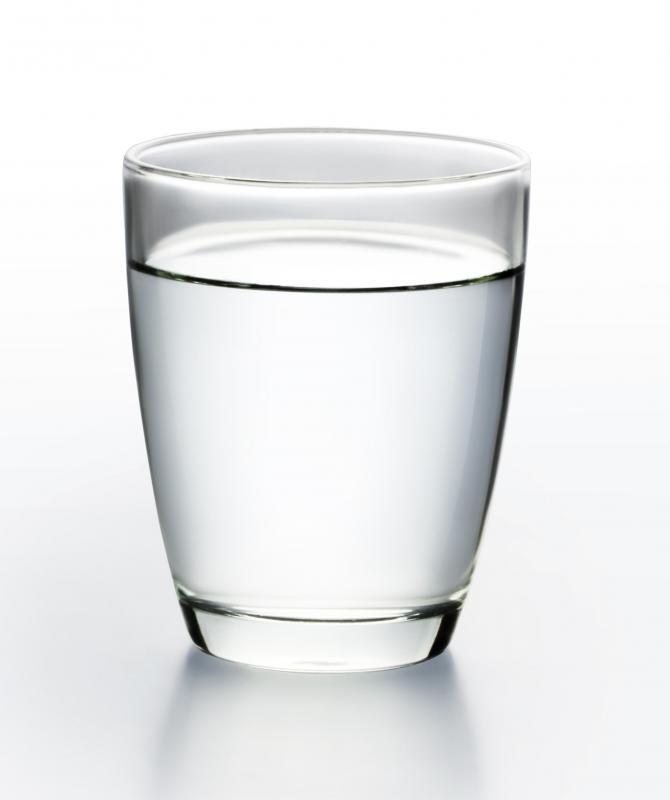At WiseGEEK, we're committed to delivering accurate, trustworthy information. Our expert-authored content is rigorously fact-checked and sourced from credible authorities. Discover how we uphold the highest standards in providing you with reliable knowledge.
What are the Signs of Dehydration?
While the human body typically loses water throughout the day through sweating and urination, it usually is replenished by eating and drinking. Extreme loss of fluids – known as dehydration – sometimes can happen through vomiting, diarrhea, loss of blood, and malnutrition. It also can be triggered by disease or illness. There are many warning signs of dehydration, and it usually can be prevented.
With the majority of the human body made up of water, dehydration occurs when there is a significant loss of fluids, and the amount of water leaving the body is greater than the amount water being taken into the body. The first signs of dehydration usually include thirst, dry skin, dark-colored urine, loss of appetite, dry mouth, weakness, and head rushes. These symptoms typically occur when the body experiences about a two-percent loss of fluids.

In more extreme cases, the signs of dehydration can include increased sweating, decreased urination, extreme fatigue, increased bodily temperature, nausea, headaches, increased heart rate, and tingling limbs. These may occur when the body has lost around five percent of bodily fluids. It generally is recommended that a person seek medical treatment immediately when dehydration symptoms include confusion, dim vision, difficulty breathing, chest pain, muscle spasms, or seizures.

Dehydration typically affects every person differently, depending on age, diet, and climate factors. Many believe the best treatment for dehydration is prevention before the signs of dehydration begin to manifest. Some people monitor their fluid levels by observing the color of their urine. If it is not clear and is darker in color, they drink more water. Usually, by the time a person feels thirsty, dehydration already can be occurring.

Many people try to prevent dehydration by consuming water throughout the day, and upping fluid intake when heavily exercising, spending time outside in the heat, or suffering from a cold or the flu. Water widely is considered the liquid treatment of choice, as many other drinks like juice or soft drinks usually cannot replenish the natural fluid loss. Many health experts and doctors recommend consuming a minimum of eight glasses of water per day.

Most bodies are different, having individual fluid requirements for a person to remain fully hydrated. One of the main keys to avoid dehydration and its symptoms usually is to know and understand how the individual body feels and works. Learning how to monitor the signs of dehydration can be one of the easiest ways to prevent further complications like heatstroke or even death.
AS FEATURED ON:
AS FEATURED ON:


















Discussion Comments
@Fboyle: Dark urine can also be caused by vitamin supplements, Your body doesn't use all of it and it can darken your urine, especially the B vitamins.
If dark urine is a sign of dehydration, then I must be always dehydrated. I don't remember a time when my urine was clear. I drink about two liters of water a day but I guess it's not enough. I'm guessing it's because I have diabetes. I read sometime back that diabetics need to drink more water because high blood sugar causes water loss.
@ysmina-- Yes, vision problems, headaches and fatigue are among the signs of severe dehydration. You need to drink water, keep a water bottle with you at all times and sip on it regularly. If your symptoms get worse, please go to the hospital. You might need an IV serum.
Doctors say that when we feel thirsty, it means that our body has already lost a considerable amount of water. So if you start experiencing fatigue and vision problems, it means you are badly dehydrated. You need to take care of yourself better and drink more water.
Can dehydration cause change in vision?
I didn't drink much water today at work and when I got home, my vision changed. It's blurry and I also feel very tired.
Post your comments